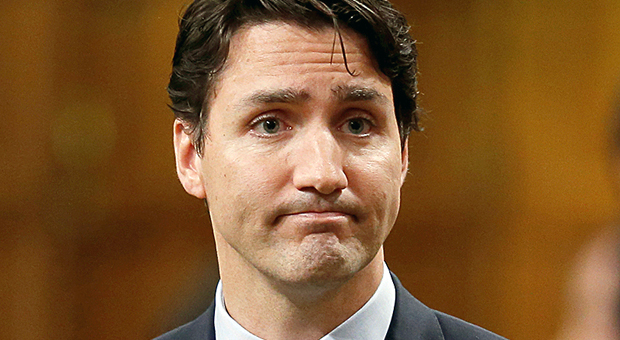
Last Wednesday, a spokesman from the Trudeau government announced they’d be rescinding a major campaign promise to reform Canada’s election system into something more representative to all Canadians.
Look, I’m a reasonable guy. There’ll always be a certain degree of change in a party’s platform after their election. That’s politics. What I can’t accept, however, is changing the fundamental nature of that platform.
Election reform is an issue at the core of Justin Trudeau’s promises of change in Canada, as well as an issue that’s especially relevant to the political representation of youth in Canada.
There are some major issues with our voting system. We’re under what’s called a “first-past-the-post” voting system, which we’ve inherited from the British parliament. Common criticisms of first-past-the-post include the high prevalence of tactical voting and gerrymandering — the act of redistricting ridings to more heavily favour certain parties based on the demographics of a riding. It even helps prop-up establishment parties, making it much harder for new or smaller parties to gain footing in a legislature.
An obvious example of this is the lack of success of the Green Party, who consistently receive four per cent of the vote and rarely receive more than one seat, compared to Canada’s established parties who receive most parliamentary seats while often receiving less than a third of the vote in any given riding.
This is especially damaging to people living in smaller, more rural or demographically-older ridings. These lean Conservative, even though often large portions of their population don’t identify with Conservative policy.
Due to demographic and geographic factors, in many of these ridings, Conservative candidates hold the plurality vote — they receive more votes than any other candidate — without necessarily holding a majority opinion within the riding. And the reverse is true for Conservatives living in ridings that are overwhelmingly Liberal. The first-past-the-post voting system institutionalizes this kind of underrepresentation.
We, living in the Queen’s community, are lucky to be a largely-consolidated voting block within the Kingston and the Islands riding. This means that even though there may be large degree of difference in political ideology between students at Queen’s and the rest of the riding, we represent a large enough percentage of the population that we have the ability to sway the vote one way or the other.
Many ridings don’t have the luxury of a politically-organized youth that represents such a large portion of the population. This means that many of the issues we as students care deeply about aren’t often represented in such ridings.
A more equitable voting system would be able to address the concerns of larger portions of each riding, not simply picking a single representative that receives a plurality of votes, and this opinion is reflected by students all around campus who I’ve spoken to.
Sara Karma, ArtSci ’18, is a political analyst for CFRC and one of the students I spoke with who’s disappointed with Trudeau’s decision.
“The way I see it, the promise of electoral reform, and particularly the idea of proportional representation, was a big reason many were swayed to vote Liberal instead of smaller parties,” she said. “For the Liberals to abandon this, especially considering they got the majority, seems like they were just making promises to get the power they wanted. It shows a lack of respect for voters and a lack of ambition towards progress.”
Like many other students, I voted for Justin Trudeau in November 2015 on promises of representation and a change of pace from the Conservative policies of Stephen Harper. It saddens me to see the party that I’m myself a part of exhibit such a brazen betrayal of the values that they campaigned on.
You’ve all heard it. When someone mentions Trudeau there’s almost always a flurry of compliments and affirmation of approval. However, this most recent action highlights the need for supporters to be able to honestly criticize their party if they’re going to hold them accountable for policy that isn’t in their best interests.
Prime Minister Trudeau, you campaigned on change in Canada. You won by such large margins because you were able to mobilize the youth to vote for you. I’m ready to support the Liberal Party, and Justin Trudeau, but if they expect to see the same results in 2019 as they did in 2015, they need to respect the promises they made that put them in power.
This includes not expecting to receive the same support from young Canadians if we aren’t seeing the change promised to us. The ball in is your court, Prime Minister.
Tags
All final editorial decisions are made by the Editor(s)-in-Chief and/or the Managing Editor. Authors should not be contacted, targeted, or harassed under any circumstances. If you have any grievances with this article, please direct your comments to journal_editors@ams.queensu.ca.
